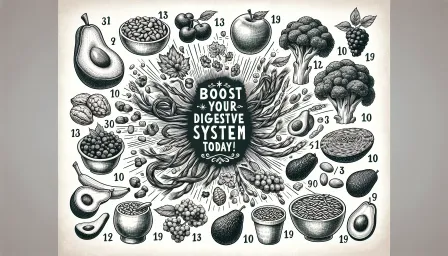Maximizing Performance: The Science of Nutrient Timing and Pre-Workout Nutrition

Discover the science behind nutrient timing and pre-workout nutrition, and learn how to optimize your diet to enhance athletic performance and recovery.
Understanding the importance of nutrient timing and pre-workout nutrition can significantly enhance athletic performance, recovery, and overall health. This article explores the science behind these concepts, providing you with actionable insights to optimize your diet.
Introduction to Nutrient Timing
Nutrient timing refers to consuming specific types and amounts of nutrients at strategic times to maximize performance and recovery. While the quality of your overall diet is crucial, the timing of nutrient intake can also play a vital role in achieving your fitness goals.
Importance of Pre-Workout Nutrition
Pre-workout nutrition involves consuming the right nutrients before exercise to enhance performance and prevent fatigue. A well-balanced pre-workout meal can provide the energy and nutrients needed for optimal performance and recovery.
Why Timing Matters
The timing of nutrient intake can influence muscle protein synthesis, glycogen replenishment, and overall energy levels. Consuming nutrients at the right times can optimize these processes, leading to improved performance and faster recovery.
Energy Needs and Macronutrients
Understanding your body's energy needs and the role of macronutrients—carbohydrates, proteins, and fats—is essential. Carbohydrates provide a quick source of energy, proteins support muscle repair and growth, and fats serve as a longer-term energy source.
Key Considerations for Nutrient Timing
- Pre-Workout: Focus on carbohydrates for quick energy, moderate protein for muscle support, and limited fats to avoid digestive issues.
- During Workout: Hydration and quick-digesting carbs for sustained energy.
- Post-Workout: Emphasize protein for muscle repair and carbohydrates for glycogen replenishment.
Effective Pre-Workout Nutrition Strategies
Balancing Macronutrients
A balanced pre-workout meal should include:
- Carbohydrates: Provide energy for your muscles. Aim for complex carbs like whole grains, fruits, and vegetables.
- Proteins: Support muscle repair and growth. Include lean proteins such as chicken, fish, or plant-based options.
- Fats: While not a primary energy source for short-term workouts, healthy fats like avocados and nuts can be included in small amounts.
Hydration
Staying hydrated is crucial for optimal performance. Aim to drink water consistently throughout the day and have a glass of water 30 minutes before your workout.
Timing Your Meal
Consume your pre-workout meal about 2-3 hours before exercising. This allows enough time for digestion and ensures that nutrients are available when needed.
If you're short on time, a smaller snack rich in easily digestible carbs and protein can be consumed about 30-60 minutes before your workout.
Sample Pre-Workout Meal and Snack Ideas
Full Meals (2-3 Hours Before Workout)
- Grilled chicken with quinoa and steamed vegetables.
- Brown rice with black beans, avocado, and a side of mixed greens.
- Whole grain toast with peanut butter and banana slices.
Quick Snacks (30-60 Minutes Before Workout)
- Greek yogurt with berries and a drizzle of honey.
- A smoothie with protein powder, fruits, and a handful of spinach.
- A banana with a small handful of almonds.
Conclusion
Optimizing nutrient timing and pre-workout nutrition can significantly impact your exercise performance and recovery. By understanding your energy needs, balancing macronutrients, and timing your meals appropriately, you can maximize your workouts and achieve your fitness goals more effectively.
Remember to listen to your body and adjust your nutritional strategies based on your individual needs and the demands of your training regimen.



























